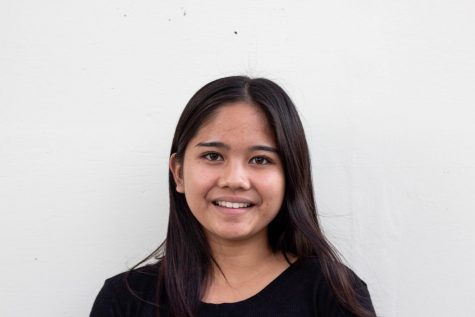A new university policy starting next fall will ban freshman residents from bringing cars to campus unless approval is granted through a waiver.
The policy was implemented due to a number of factors including overcrowded parking lots and an influx of students living on campus, Director of Parking and Transportation Services Deborah Richeson said.
The Sophomore Success Program, which requires non-local sophomores to live on campus, was something Richeson said will undoubtedly increase the demand for campus parking spots.
“We are going to have live-on sophomore requirements so we knew that was going to bring more cars on campus as well,” Richeson said.
In addition, Richeson said with incoming freshmen living in Chapultepec and the new Uaxaca residence hall opening next fall, Parking 12 would become an even more highly occupied parking structure as it is already heavily used by commuters. This issue has been exacerbated as Uaxaca had been built atop the former Parking 9 lot.
“We all knew that was going to have a negative impact, considering how we’re already impacted in P12 and commuters want to have the opportunity to park in those spaces as well,” Richeson said.
P12 was originally built for Viejas Arena, Richeson said, and it would be more difficult to utilize the lot for events with the number of freshman residents who would end up parking there.
“It makes it more difficult for when we have Viejas events because we would need to kick them out and we wouldn’t want to do that for safety reasons,” Richeson said.
Some of that information does, however, contradict an interview Richeson gave a Daily Aztec reporter in spring 2017 when the plans for what would ultimately become Uaxaca residence hall were still being discussed. At the time, Richeson said the addition of the new dorms wouldn’t have much of an impact on campus parking.
“I can tell you that it is freshmen that will be coming into the new dorms if they’re built and it will be people that are living on campus, and the amount of sales of permits that we do for people living on campus is actually very low,” she said, “and so the fact of the matter is that we don’t feel that that group is going to impact the parking on the west side as much as it might seem, because of the fact that they buy such a low number of parking permits, which tells me that they’re using other modes of transportation.”
She went on to say in the 2017 interview that the university was never short on parking on a daily basis — students could simply park on the east side of campus.
“I mean, we do that right now when we close down structures for events,” Richeson said at the time. “We have parking available every day in (Parking) 3 and (Parking) 4.”
There will be some exceptions to the new rule. Incoming freshmen with documented hardships are able to apply for a waiver that must be approved beforehand, according to the SDSU Parking and Transportation webpage. The specific criteria and waiver to apply for freshmen parking can be found on the webpage.
“We understand that there (are) going to be situations where somebody might need to have a car for a medical need, extenuating family circumstances, academic need, if they already have a job or (for) military purposes,” Richeson said.
When it comes to alternatives to having a car, geography freshman Noah Peterson said there are more than enough options to get students where they need to be.
“We don’t have the best metropolitan transit system, but we have one that works,” Peterson said. “We also have Uber and Lyft, so it wouldn’t be the end of the world if freshmen were unable to have parking spaces next year.”
But, international business freshman David Liao said having a car as a freshman allowed him to feel safer when going places at night, something public transit lacks.
“To me, public transportation is not safe and having my own car allows me to have the freedom to go places without risks,” Liao said.
Management junior Korrin Davis said she is also in opposition to the new policy. She said it’s unfair that freshmen will not be accommodated with parking spaces, especially those who rely on their cars.
“It’s really inconvenient for incoming freshman and unfair that previous freshmen were allowed to have parking spaces,” Davis said.
Editor in Chief Will Fritz contributed reporting to this story.












